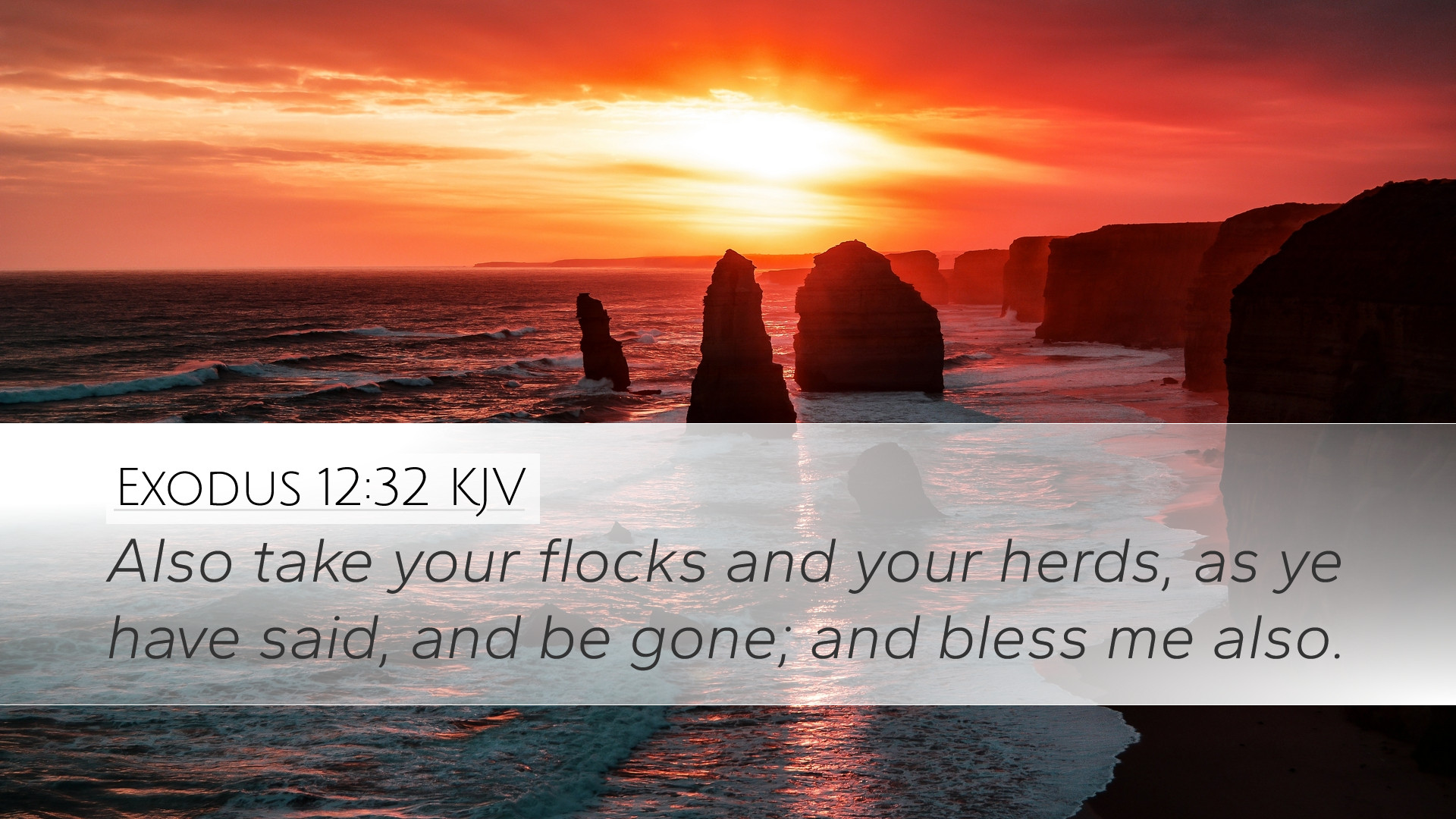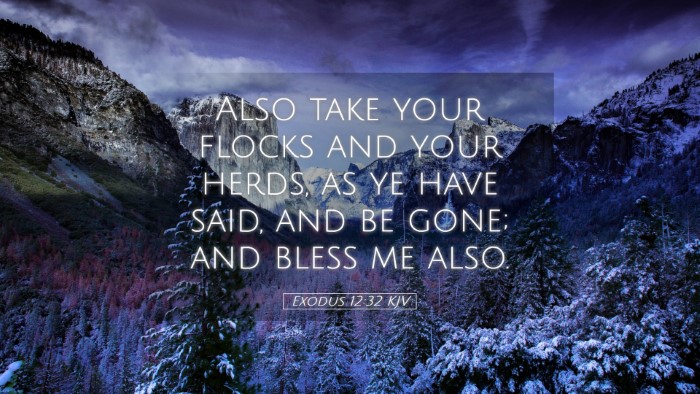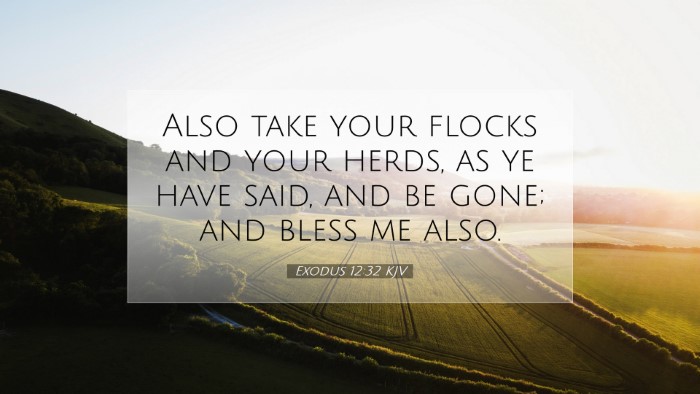Exodus 12:32 - Commentary Summary
Bible Verse: "And take your flocks and your herds, as ye have said, and be gone; and bless me also."
Contextual Background
The book of Exodus documents the liberation of the Israelites from slavery in Egypt, underscoring God's mighty acts of deliverance. Chapter 12 speaks specifically about the final plague, the death of the firstborn, which compels Pharaoh to release the Israelites. This command in Exodus 12:32 is significant as it encapsulates the culmination of this liberation process.
The Imperatives of Exodus 12:32
This verse emphasizes several critical elements related to the exodus of the Israelites:
- Divine Sovereignty: God's control over the events leading to the Israelites' release is paramount. The plagues, including the last one, were manifestations of His power and purpose.
- Pharaoh’s Reluctance and Acceptance: Initially, Pharaoh's heart was hardened, but culminating circumstances forced him to allow the Israelites to leave. His instruction to 'bless me also' suggests a recognition of divine authority.
Insights from Commentators
Matthew Henry's Commentary
Matthew Henry notes that Pharaoh, despite his previous resistance, willingly concedes and encourages the Israelites to take their possessions. Henry highlights the change in Pharaoh's attitude, emphasizing that God's purpose prevails regardless of human obstinacy. The request for blessings illustrates Pharaoh's acknowledgment of God's power and the recognition of the beneficial relationship the Israelites carried with them.
Albert Barnes' Commentary
Albert Barnes elaborates on the challenge faced by Pharaoh after the calamities of the plagues. He interprets Pharaoh's words as a mixture of desperation and acknowledgment of the true God. Barnes suggests that Pharaoh's 'bless me also' can be viewed as a symbolic plea, showcasing the deep need for divine favor after recognizing the futility of opposing God's will. This plea signifies a pivotal point in his tumultuous relationship with the Almighty.
Adam Clarke's Commentary
Adam Clarke asserts that this verse represents both a literal and spiritual departure from Egypt. Clarke indicates that the command to take their flocks reflects God's promise of provision and is a precursor to the Israelites’ journey to the Promised Land. He further emphasizes the duality of emotions present in Pharaoh's request, suggesting it stems from both fear and a desire for reconciliation, a complex interplay between power and vulnerability.
Theological Implications
Exodus 12:32 reveals profound theological themes:
- The Nature of God: This verse reinforces that God is a liberator who actively intervenes in human affairs to fulfill His covenant promises.
- Human Response: Pharaoh's change of heart serves as a cautionary tale about recognizing and responding suitably to God's hand in our lives.
Practical Applications
There are several applications that can be derived from this verse:
- Acknowledgment of God's Authority: Believers are encouraged to recognize God's sovereignty in their lives and submit to His leadership.
- The Importance of Prayer: The phrase 'bless me also' invites believers to seek divine blessing actively, recognizing the importance of prayer in accessing God's favor.
- Living in Freedom: Just as the Israelites were liberated from bondage, Christians are called to embrace the freedom offered in Christ and to carry this truth to others.
Conclusion
Exodus 12:32 stands as a powerful testament to the majesty of God’s deliverance and the complexity of human interaction with the divine. By reflecting on the insights of respected commentators, readers are encouraged to deepen their understanding of God's providence, acknowledge His authority, and respond appropriately in faith. This passage invites believers into a transformative journey aligned with God's redemptive purpose, where acknowledgment of divine authority leads to genuine liberation and blessings.


